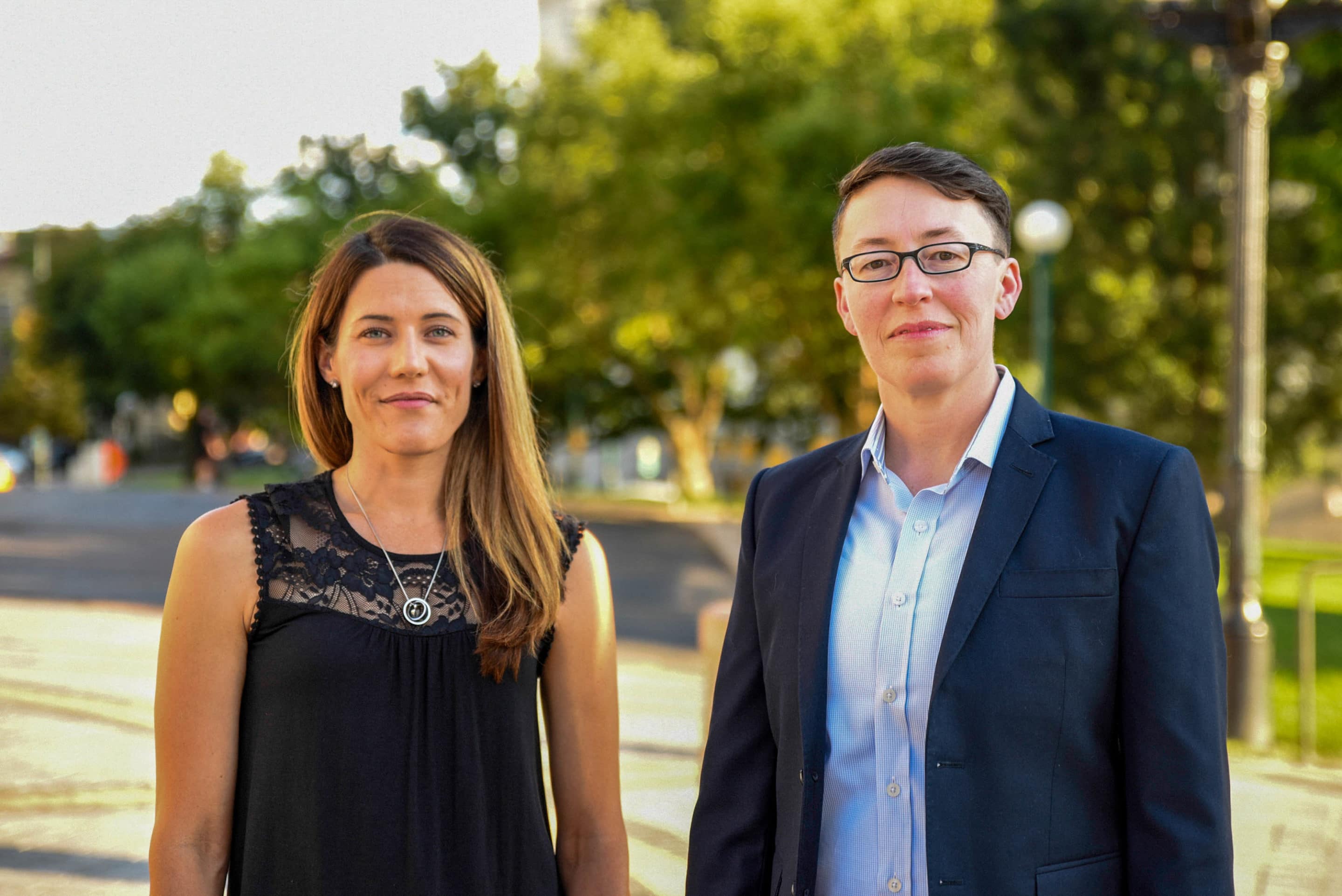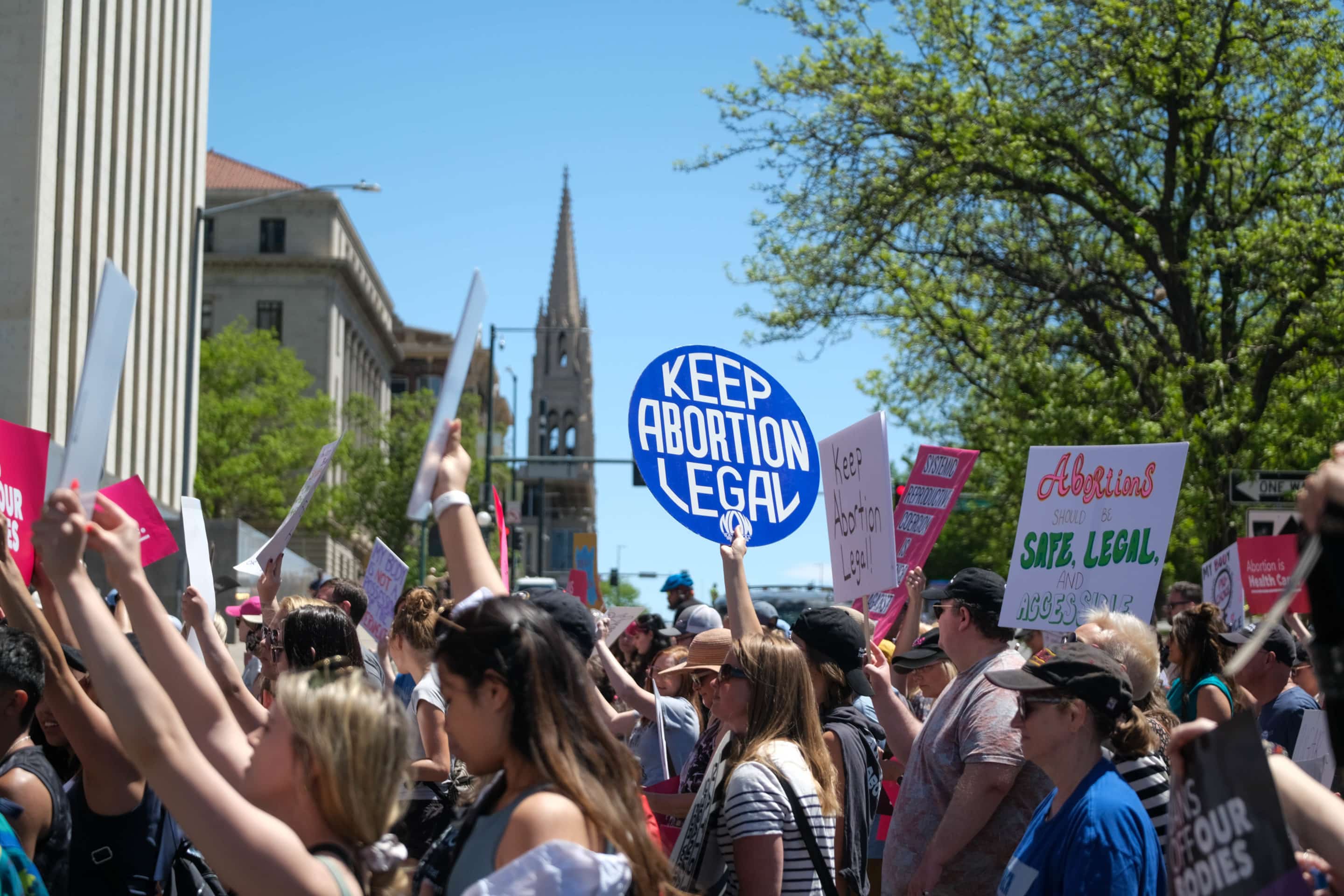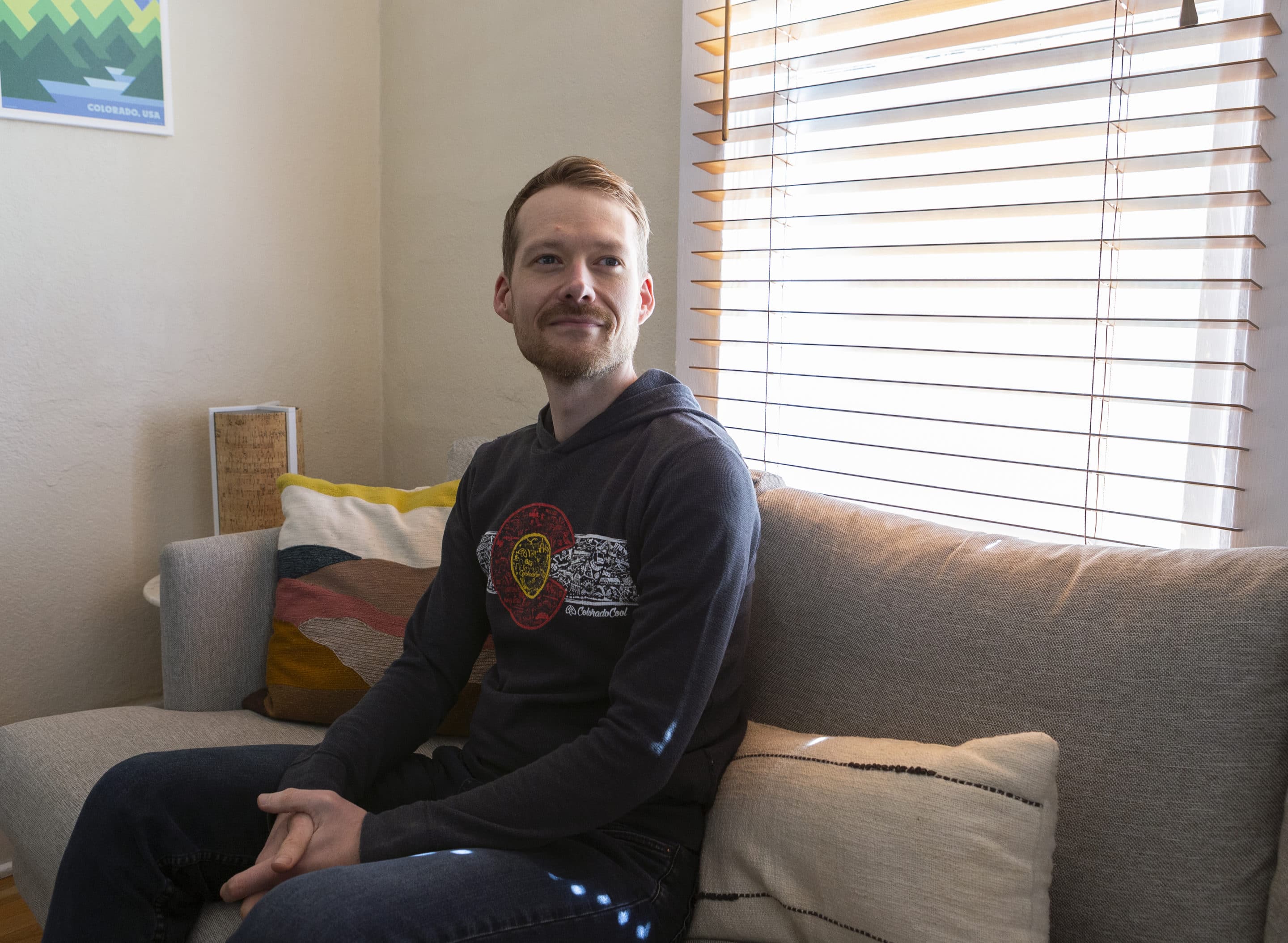//Kristina Fedran and Indra Lusero, founder of Elephant Circle, stand in front of the Colorado State Capitol on August 22. Photo by Madeleine Kelly | [email protected]
When Kristina Fedran was rushed into the back of a police car after an argument with her ex-husband in September 2019, her first thought was how she would deliver breast milk to her son. After repeatedly being denied a breast pump at an Adams County jail over the next three days, panic set in as her breasts began to painfully swell.
“I didn’t have a voice. No one would listen to me,” the 37-year-old said. “By the time I got out of jail, I was dried up due to the stress.”
The domestic abuse allegations laid against her were later dropped, but Fedran believes leaving her son so abruptly severed a bond, resulting in lasting damage for them both. She pointed out that a child shouldn’t be punished despite the parent’s guilt or innocence.
“I feel that the jails and the courts still have an obligation to that nursing child, to make sure that they get the necessary nutrition and the milk, and overall, for the mother’s health because this has taken a toll on me for something that I never even did,” Fedran said. She later added, “I hope this never happens to another mother.”
Less than two years later in April 2021, Fedran testified on behalf of Elephant Circle, a Denver-based nonprofit devoted to birth and reproductive justice, for Senate Bill 21-193. The bill protects pregnant and postpartum imprisoned people. It includes a requirement for facilities to provide menstrual pads and breast pumps to inmates after birth and establishes procedures for enabling contact between the parent and baby, including breastfeeding support.
SB21-193 was just one of three bills comprising the 2021 Birth Equity Bill Package that Gov. Jared Polis signed into law in July covering everything from postpartum Medicaid to increased tracking of health outcomes. The package was created in large part due to the efforts of Elephant Circle and organizers of color across the state. According to the CDC, Black and Indigenous women are two to three times more likely to die from pregnancy-related causes than white women.
Rep. Leslie Herod, the first Black LGBTQ+ legislator in the General Assembly, said she supported the package specifically because Black, brown and Indigenous women and their infants were dying at high rates during childbirth.
“As a movement that’s been led by Black women across the country, it was really important that we really address this issue not only with studies but with tangible actions that will decrease the infant and maternal mortality in Colorado,” Herod said.
According to Elephant Circle, even though Colorado ranks as mid to average in safe birthing indicators, there are social, economic and racial factors that can negatively impact families. According to The Giving Voice to Mothers study, one in six birthers surveyed reported experiencing one or more types of mistreatment during perinatal care, with the rate being higher in hospitals and for people of color. The pandemic only exacerbated these inequities.
“This is not a partisan issue,” Herod said. “While Black women and brown women have higher rates of infant and maternal mortality, white women also suffer from higher rates in this country than in other countries. It’s a universal problem. The women of the General Assembly really understood that.”
In a study by The Commonwealth Fund looking at 11 developed countries, the United States ranked last in maternal care with the highest maternal mortality rate.
Sen. Janet Buckner, another leader behind the Birth Equity Bill Package, is aware that the fight against maternal mortality is just beginning. The new slate of bills requires thorough tracking of disparity in pregnancy outcomes among all birthers, something that she heavily advocated for.
“For too long birthing persons in certain demographics have dealt with harmful inequities in health care services relating to childbirth,” Buckner said. “The Birth Equity Bill Package will provide much-needed reforms that increase access to high-quality care, while also implementing new policies that lead to less discrimination.”
Buckner says the bills will expand postpartum Medicaid coverage for at least one year, improve health reporting requirements and introduce evidence-based best practices to improve maternal health and reduce infant mortality.
Elephant Circle founder Indra Lusero says the bills in the Birth Equity Package are unique in their ambition and willingness to address the problem not only in the books but also in jail cells and hospital rooms. Lusero says the solution to birth justice is not with one clinical standard. Instead, it’s the ability to be aware of how human rights violations intersect with the perinatal period in disparate ways across Colorado.
“We think it’s really important to advocate with strategies for tackling power and oppression,” Lusero said. “We also think it’s important to have strategies for change and resilience. This kind of work can be so discouraging and often overlaps with people’s experiences of trauma.”
The ultimate goal of this legislation is to protect the rights of birthing people and improve the outcomes of pregnancy and childbirth. It especially works to ensure a nurturing atmosphere at the time of birth, whether through a companion or doula, along with a partner or spouse. Activists believe this connection when a birther is most vulnerable is non-negotiable.
Like Fedran, Nelia Borden testified before a state capitol committee on behalf of Elephant Circle. Her story started at Vail Health with a cry for help as she gave birth for the first time in 2019. What she thought would be a tender and loving experience turned traumatic when her doctor performed an episiotomy against her will hours into labor. The procedure is a surgical cut at the opening of the vagina to aid in delivery.
After requesting her medical record and identifying the false documentation of her verbal consent, Borden filed a hospital complaint about the unwanted medical intervention and left a negative review that gained traction on social media. The hospital forced her to remove the review with the threat of legal retaliation and dismissed her formal complaint. Her concerns went unheard.
Borden later realized she was not alone in experiencing postpartum post-traumatic stress disorder. One study from 2003 found that a third of mothers who experience a traumatic delivery go on to develop PTSD. She opted for a home birth for her second pregnancy due to her mistrust of the hospital system. She even became a certified doula to help birthers avoid and navigate obstetric violence or the mistreatment or disrespect during childbirth.
“I thought my experience was a freak experience. As I was researching more and more, I realized it’s an epidemic,” Borden said. “We’re failing birthers right now.”
Enjoyed this story? Help us keep the lights on! Supporting local press ensures the stories you want to read keep coming, become a member for free today! Click here.





This bill has pass with the effort of my oldest daughter Kristina Fedran work with must effort to but this law in place for mother’s and nursing mothers I am so very proud she finally was able to have this law pass